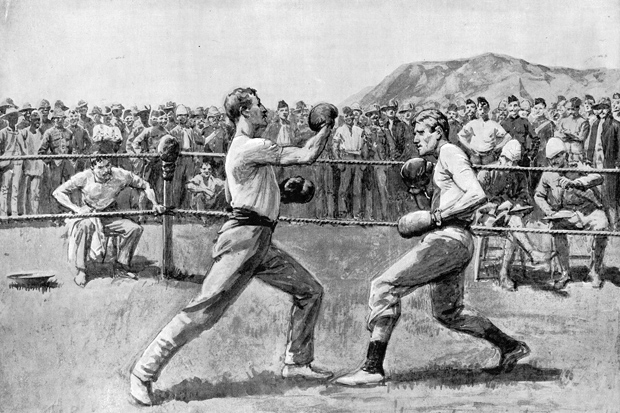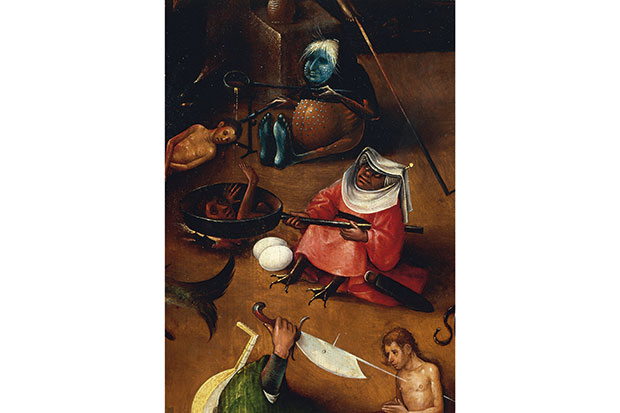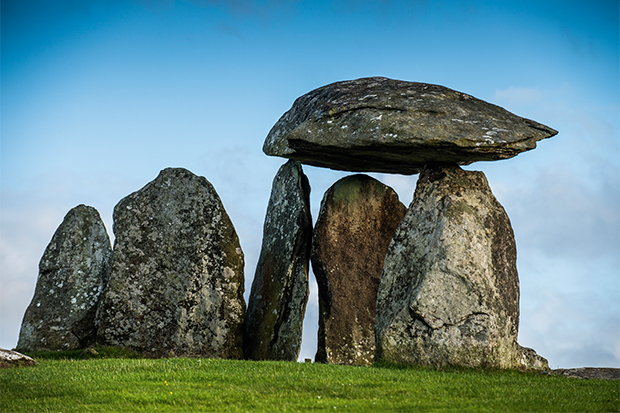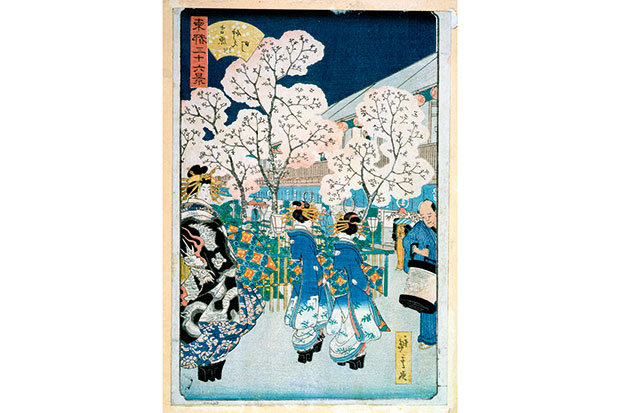We can all share the anguish in the downfall of a simple soul — for movie-goers Brando’s despairing ‘I coulda’ been a contender!’ in On the Waterfront still resonates — but I have a problem with heroic thickos: Othello, so easily duped; purblind Lear… So I’m ambivalent about the leading character in the new novel by the French-Algerian writer Yasmina Khadra — his wife’s name, adopted by Mohammed Moulessehoul to evade the military censors when he was an officer in the Algerian army. The award-winning author of more than 20 novels, most notably The Swallows of Kabul, he now lives in France but retains the pseudonym.
The Angels Die is the story of Turambo, a slum-pup named after a village wiped out in a mudslide, who stubbornly clings on through everything, from shoe-shining and near slavery, to make it to the high life.
We first meet him as he walks, chains clanking, from the death cell to the waiting guillotine. A last step, a blinding light and time is suspended as his life unwinds before us. It’s a tough book: there are few pages without punches for protagonist and reader alike. Fair enough, as boxing is to be our hero’s escape from penury, though the blows rained down on him are as often outside the ring as in it. He’s an innocent in a brutal world, but it’s hard to care deeply about someone who persistently creates his own misfortune.
The book — set in Oran in the 1920s and 1930s — unveils a harsh picture of colonial life in Algeria: cacophonous streets, squalor, violence and destitution alongside luxury, with the Arabs dismissed as little better than animals by their European overlords. You feel a pang for the boy when an official points out, with condescending amusement, that the village he’s named after was not Turambo, but Arthur-Rimbaud, mispronounced by the illiterate peasants. There are ominous hints here of the hatred that would later explode into the bloody war of independence.
Turambo’s lethal left hook is the key to fame and fortune as he literally fights his way out of the gutter to become North African champion, alienating his traditional Muslim family along the way. There are three women in his life: a shy, chaste cousin, followed by a kindly tart who relieves him of his virginity and then stuns him by spurning his naive marriage proposal. Mortified, he finds solace with the daughter of a wheelchair-bound French boxer, disabled in a fight. Understandably, she loathes and despises boxing, and the champ, desperately in love, will have to choose between happiness and his career.
Pimped to stardom by crooks, thugs and soi-disant friends, Turambo sees, too late, that he’s no more than a commodity. A climax of high mayhem and murder leaves him facing the guillotine, which is where we came in — to discover he has evaded the final blade. To say more would involve major spoilers, but a laborious coda heavy with exposition and philosophising is a let-down after Khadra’s richly textured panorama of French colonial life.
The post The horrors of French colonialism appeared first on The Spectator.
Got something to add? Join the discussion and comment below.
Get 10 issues for just $10
Subscribe to The Spectator Australia today for the next 10 magazine issues, plus full online access, for just $10.
You might disagree with half of it, but you’ll enjoy reading all of it. Try your first month for free, then just $2 a week for the remainder of your first year.














Comments
Don't miss out
Join the conversation with other Spectator Australia readers. Subscribe to leave a comment.
SUBSCRIBEAlready a subscriber? Log in